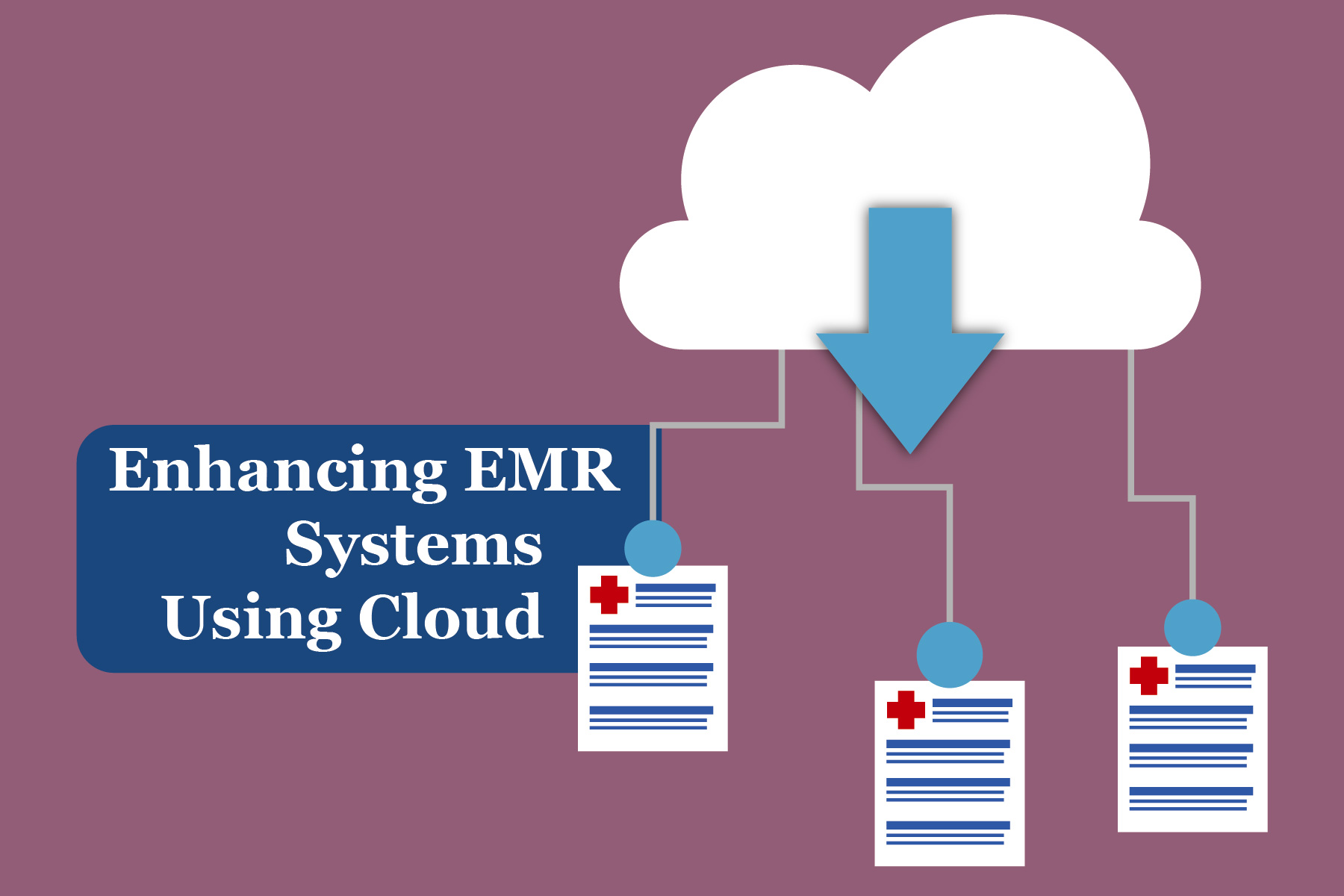Cloud Computing is speeding up the way we create, share, and view data. With features such as multiple backups, high security, remote access, and auto-scalability, this platform of virtual computing is assisting health care providers and medical device manufacturers to improve their online led services, allowing greater flexibility in their business models. Indeed, it makes the system more robust and secure against data failures and an example of such a system is the Cloud-based EMR software system.1
EMR or Electronic Medical Records are the digitized patient records or charts which document a patient’s medical and treatment history. These records are gathered from a single source of medical practice and are not shared across other platforms. When EMRs are integrated with Cloud and medical devices, they provide a myriad range of capabilities. As EMR applications are hosted online on Cloud, they avoid the need to be accessed locally which not only enables universal online access but also significantly increases security. Therefore, a common online portal can be utilized by users to view data as well as record patient data on e-charts by health professionals. Moreover, Cloud’s “Platform as A Service” model provides an entire suite of advanced tools and services which lowers down the initial development, installation, hosting, and application running cost. Also, as the patient records keep increasing with time, Cloud auto-scales the storage avoiding applications falling into data storage failures.
One of the key features facilitated by EMRs with Cloud Computing is API integration. EMRs with APIs provides continuous monitoring abilities along with high powered analytics. Relevant information and custom plans can be generated by analyzing huge patient data sets. Also, when integrated with hardware, these EMRs can record continuous data which can be later analyzed to identify any underlying conditions or illness, facilitating early diagnosis. These EMR systems are software-based applications and from an FDA standpoint, as they are utilized in a health and medical setting, they should be FDA compliant before they are used in the industry.
Being a software system, these EMR applications may fall into the categories of Software as a Medical Device (SAMD) or Software in a Medical Device (SIMD). In such cases, manufacturers or software developers should sufficiently test and document their EMR systems which validate if the system reaches the defined intended use. This is achieved by documenting the system and software requirements along with the overall system architecture. For verification and validation purposes, manufacturers should perform testing which may include unit, system, integration, and acceptance testing along with the risk assessment which captures any safety-related risks present in the system. Also, when it comes to Cloud-based data, developers should make sure they are using the latest data security frameworks to keep their hosted data secure. Example: Selecting a Cloud platform that incorporates HIPAA (Health Insurance Portability and Accountability Act) based data security.2 If the FDA observes that the system meets the required quality, efficiency, security, and safety requirements, it provides the clearance to host or market the Cloud-based EMR application.
To summarize, Cloud Computing is powering EMR systems and enhancing the online patient documentation services to add elements such as universal remote access and data scalability. With features such as API Integration and Analytics, these systems are adding an overall quality to patient care. Surely, before these applications are released and utilized in the medical industry, they should meet all FDA regulatory guidelines which ensure they meet the required levels of safety and quality. Do you have a software product that may require FDA clearance or approval? Our regulatory and software experts at EMMA International can help your software application get FDA compliant. Contact us at 248-987-4497 or info@emmainternational.com for additional information.
1Vinati Kamani Arkenea (October 2019) 5 Ways Cloud Computing is Impacting Healthcare. Retrieved on 24th November 2020 from https://www.healthitoutcomes.com/doc/ways-cloud-computing-is-impacting-healthcare-0001.
2Rahul Varshneya (August 2019). How to Ensure That Your Cloud Hosted Healthcare Data Is HIPAA Compliant. Retrieved on 24th November 2020 from https://hostingjournalist.com/how-to-ensure-that-your-cloud-hosted-healthcare-data-is-hipaa-compliant.





